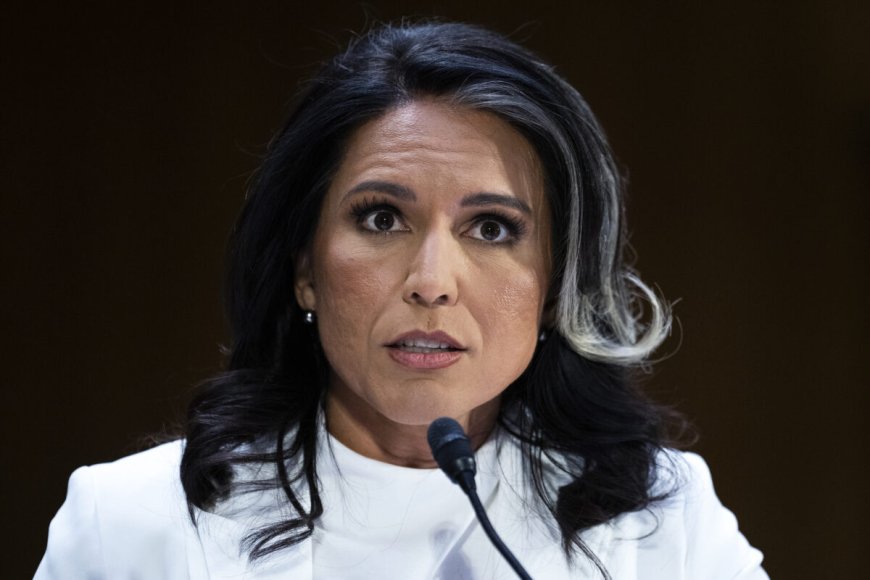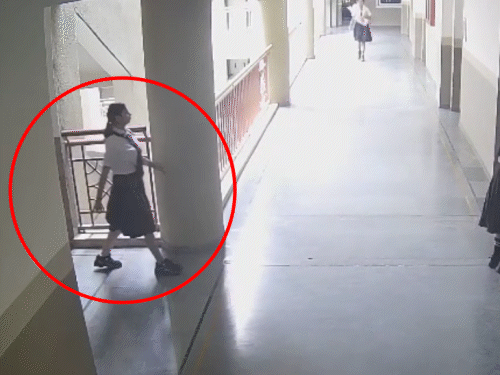Tulsi Gabbard Strips Security Clearances From 37 National Security Officials in Sweeping Move
Tulsi Gabbard revokes security clearances for 37 current and former national security officials, sparking debate over accountability and influence in Washington.

In a surprise policy move that has sent shockwaves through Washington, former congresswoman and current U.S. official Tulsi Gabbard announced the revocation of security clearances for 37 current and former national security officials. The decision, revealed during a Friday morning press briefing in Washington, is already sparking fierce debate over transparency, accountability, and political motivations.
A Sudden Shift in National Security Oversight
Gabbard, who has often positioned herself as an outsider willing to challenge the Washington establishment, justified the move as necessary to curb what she described as the “abuse of classified access” by individuals no longer serving in direct government roles. She argued that too many former officials had retained security clearances, enabling them to maintain influence in policy discussions and shape public opinion based on classified knowledge.
“The American people deserve a government that operates without hidden loyalties and shadow influence. This action is about protecting our democracy from individuals who misuse privileged access,” Gabbard stated.
The list of officials affected has not been made fully public, though reports suggest it includes former intelligence leaders, ex-defense officials, and some who have been outspoken critics of current U.S. foreign policy.
A Longstanding Controversy in Washington
Security clearances for former officials have been a long-debated issue in Washington. Traditionally, high-ranking figures such as ex-CIA directors, defense secretaries, and senior diplomats retain clearances even after leaving office. The rationale has been that their experience and insights remain valuable when consulted by successors or in advisory roles.
However, critics argue that the practice allows former officials to profit from insider access while working in the private sector or influencing partisan debates. Gabbard’s action echoes earlier debates from the Trump administration, when some officials had their clearances revoked amid accusations of bias and misuse of access.
Bipartisan Reactions Highlight Deep Divides
The decision has drawn mixed reactions across party lines:
-
Supporters argue that Gabbard is taking bold steps to reduce entrenched power structures and promote accountability. They see it as a correction to years of blurred boundaries between public service and private interests.
-
Critics, however, warn that the sweeping nature of the move could weaken institutional memory, discourage qualified people from entering government service, and weaponize national security for political gain.
Former officials impacted by the revocation are expected to challenge the decision both publicly and, potentially, in court.
Impact on U.S. National Security Discourse
The broader implications are still unfolding. Analysts suggest this move could reshape how Washington handles classified access, particularly in the intelligence and defense communities. It may also raise questions about how much influence former officials should retain over U.S. foreign and domestic policy after leaving their posts.
Some experts point to the possibility of Congress revisiting existing laws on clearances to ensure they are applied consistently and transparently, preventing them from becoming tools of political retaliation.
Gabbard’s Broader Political Strategy
For Tulsi Gabbard, this decision also underscores her brand of anti-establishment politics. Since her days as a Democratic congresswoman from Hawaii, Gabbard has often broken with her party on issues ranging from foreign intervention to surveillance powers.
By directly targeting national security elites, she reinforces her image as someone unafraid to challenge entrenched systems—a message that resonates strongly with voters skeptical of Washington insiders.
What Comes Next
The 37 officials stripped of clearances now face an uncertain future in how they engage with intelligence and defense communities. Meanwhile, government agencies are expected to issue clarifications on whether additional revocations may follow, and under what criteria.
For now, Gabbard’s decision represents one of the most sweeping revocations of access in modern U.S. history, signaling a turning point in the relationship between government power, national security, and public accountability.
What's Your Reaction?
 Like
0
Like
0
 Dislike
0
Dislike
0
 Love
0
Love
0
 Funny
0
Funny
0
 Angry
0
Angry
0
 Sad
0
Sad
0
 Wow
0
Wow
0





































































